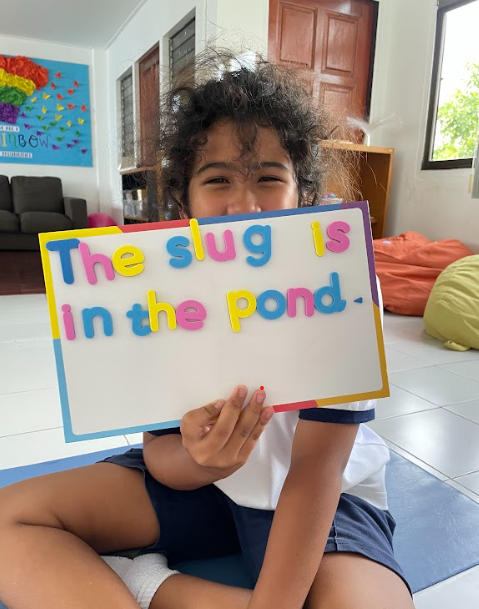Special Educational Needs (SEN) at RBIS International School
At RBIS we are committed to providing an inclusive and supportive learning environment for all learners, including those with Special Educational Needs (SEN). Our dedicated team of educators and support staff work collaboratively to ensure that every student can reach their full potential.
Our Commitment to Inclusion:
We believe that every learner is unique and deserves an education that meets their individual needs. Our commitment to inclusion is reflected in our approach to SEN, where we strive to create an environment that promotes learning, growth, and success for all.
"Every student can learn, just not on the same day, or the same way."
- George Evans
This quote encapsulates our philosophy at RBIS, emphasising the importance of recognising and accommodating diverse learning styles and paces. We offer the following to learners who need additional support:
Individualised Education Plans (IEPs):
We understand that learners with SEN may require tailored support to meet their specific learning needs. Our school implements Individualised Education Plans (IEPs) to create personalised learning pathways for each learner with SEN. Our IEPs include short and long term goals as well as how we plan on supporting learners to achieve their goals. These plans are developed in collaboration with the SENCo, teachers, parents, and specialists to ensure a holistic and effective approach.
Behavior Support Plans (BSPs):
For learners who may require additional support in managing behaviour, our school implements Behavior Support Plans (BSPs). These plans are designed to identify specific behaviours, set achievable goals, and implement strategies to support positive behaviour development.
Nurture Group:
RBIS recognises the importance of providing a nurturing and supportive environment for students with SEN. Our Nurture Group is a small, specialised class that focuses on academic and social and emotional development. It is specifically designed for learners who are struggling to access our curriculum and allows them to work at their own pace. This setting allows learners to build essential skills and gain confidence in a supportive and understanding atmosphere.
Here are some key aspects of our Nurture Group classes for learners with SEN:
1.Targeted Support:
Lessons focus on addressing specific areas of difficulty or challenge for students with SEN. These areas may include reading, writing, mathematics, social skills, communication, or other academic and developmental domains.
2.Small Group Settings:
To provide more individualised attention and support, lessons are often conducted in small group settings. This allows the Nurture Group teacher to closely monitor each student's progress and adjust the instruction as needed.
3.Specialised Curriculum:
The curriculum in Nurture Group may be modified or adapted to suit the learning style and pace of students with SEN. Differentiated instruction and varied teaching methods are employed to enhance understanding and retention of concepts.
4.Multi-Sensory Approaches:
At RBIS, we utilise multi-sensory teaching approaches to engage students with diverse learning styles. This may involve incorporating visual aids, hands-on activities, technology, and other resources to enhance the learning experience.
5.Regular Progress Monitoring:
Continuous assessment and progress monitoring are integral components of Nurture Group. Our educators use various assessment tools to measure a student's progress, identify areas of improvement, and make necessary adjustments to the individualised education plan.
Intervention
For learners who may only need intervention a few hours a week, we offer 1-2-1 intervention classes that are tailored to provide targeted support to learners in order to accomplish the goals as set out in the learners IEP.
Teaching and Learning Support Assistants
Our dedicated teaching assistants support learners with SEN and work closely with classroom teachers to provide additional assistance and facilitate small group activities. In addition to teaching assistants, RBIS employs learning support assistants who specialise in providing targeted support to students with SEN. These professionals collaborate with the SENCo, teachers and parents to implement effective intervention strategies, fostering academic progress and overall development.
At RBIS International School, we are proud to embrace diversity and provide a nurturing educational environment that fosters the growth and success of all our learners. Through personalised support, collaborative efforts, and a commitment to inclusivity, we strive to empower every learner to achieve their full potential. If you have any questions or would like more information about our SEN programs, please don't hesitate to contact us.






